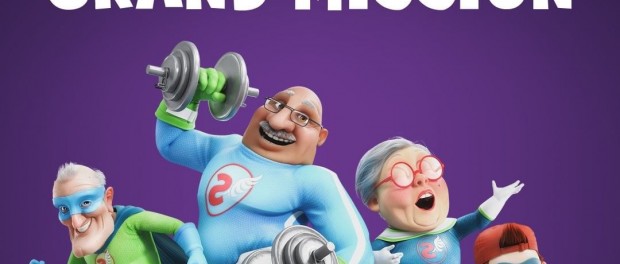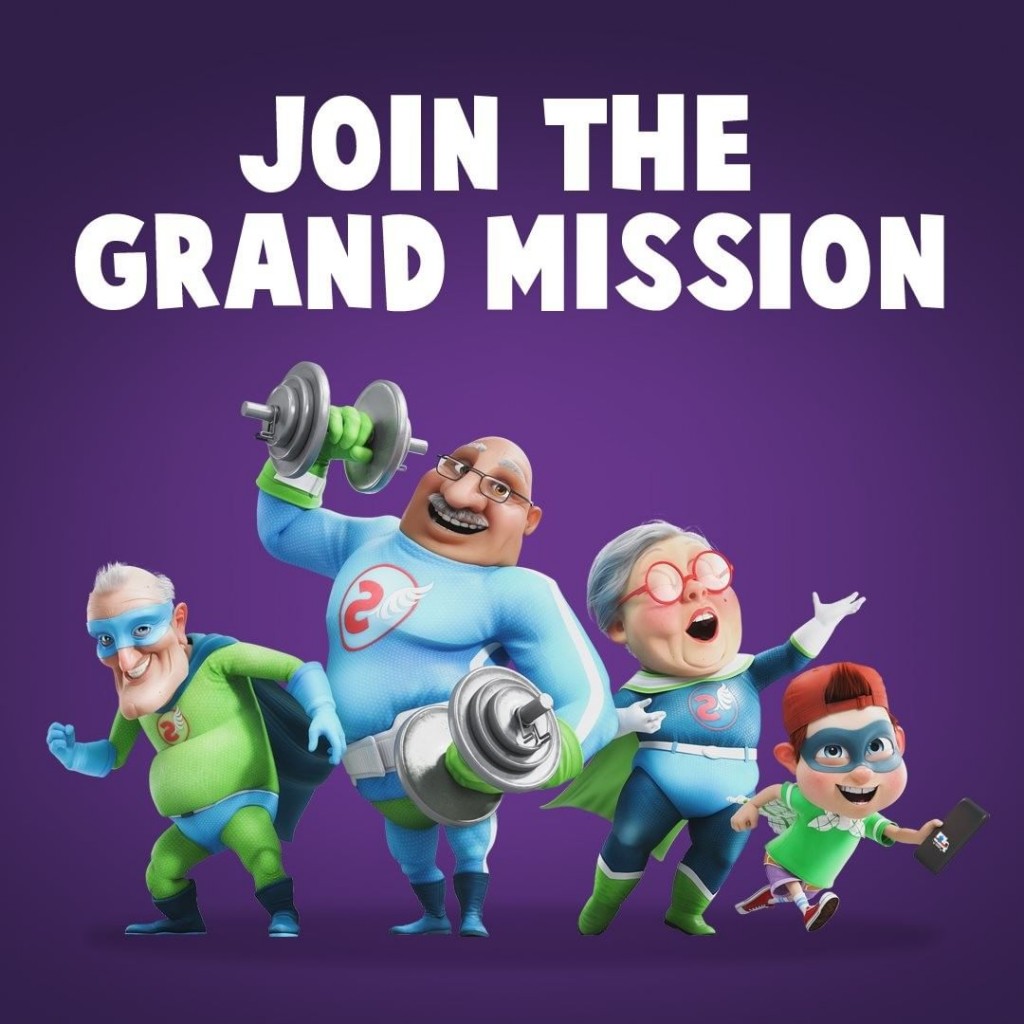A CALL OUT TO SCHOOLS TO SUPPORT AN IMPORTANT CAUSE

Primary schools around the world are being invited to join a ground-breaking health educational campaign. FAST Heroes, supported and endorsed by the World Stroke Organization, is being rolled out globally – with a Grand Mission to recruit a million children to help save their Grandparents.
The award-winning FAST Heroes campaign seeks to use children between the ages of 5 and 9 years of age as the catalyst to help improve recognition of the signs of stroke, as well as the need for speedy action. Leveraging their amazing enthusiasm for learning and sharing, children are encouraged to spread knowledge to the rest of their family, particularly their grandparents. The educational resources are fun, engaging, and interactive, teaching children about empathy and love, as well as providing practical life-saving skills.
Sheila Martins, Neurology Professor and President elect of the World Stroke Organization, said: “One in four of us will have a stroke in our lifetime, and worldwide, it is the second leading cause of death and the third leading cause of disability. However, it is treatable. People who have a stroke need access to high quality acute care as quickly as possible, so increasing awareness of the key symptoms is vital. Children can help make a real difference by sparking interest amongst their wider family. The overarching aim is to help ensure that when stroke strikes, grandparents can survive with their lives intact thanks to effective and fast treatment.”
Jan Van Der Merwe, who heads up the FAST Heroes campaign, said: “Schools can get involved at the level that’s right for them – from implementing the programme in classrooms, through to remote learning options where children and their families can participate from home. They can access free resources, help take part in a GUINNESS WORLD RECORDS™ attempt, and win great prizes by competing with other schools in their region. It’s a great chance to get involved in something special for an important cause.”
Jan Van Der Merwe continues: “The World Health Organisation and UNESCO recently launched a new initiative aimed at “Making Every School a Health Promoting School” (HPS). The initiative recognises that promoting health education from early childhood through the school setting, would benefit not only the children themselves but also their families, peers and their wider communities. Let’s help make every school a Health Promoting School, because together we can save the world – one child and one grandparent at a time.”
The learning modules centre around four animated characters – a group of retired superhero grandparents and their grandson Timmy. They teach children about the three key signs of stroke – a face that suddenly droops to one side, one arm that suddenly goes weak, or two lips that suddenly cannot form speech – as well as the importance of immediately calling an ambulance. To help role model the desired behaviour, an shows Timmy being a FAST Hero by calling 112 when his grandpa Franc has a stroke.
Research has shown that people often do not recognise the key signs of a stroke and do not seek emergency medical care straight away. A recent study[1], published in the BMC Emergency Medicine journal, showed that only 23% of stroke patients correctly realised they were having a stroke, and just 11% called for an ambulance. Interestingly, six in ten (63%) called a relative or friend to ask for advice instead, with only a third (32%) receiving the correct advice to call an ambulance straight away.
Ethienne Reynecke, a professional rugby player in South Africa and a stroke survivor, said: “The biggest mistake I made was to go and lie down when my symptoms started. When I woke up, my daughter Layla realised something must be wrong. My speech was affected because of the stroke, which meant she could not understand me. She immediately told her mum that she thought I needed to go to hospital. My daughter probably saved my life that day.”
Professor Hariklia Proios, member of the Schools for Health in Europe (SHE) research group, said: “Educating children is proven to be a viable way to enhance their community’s stroke preparedness2. By implementing the FAST Heroes campaign in schools in Greece, we were able to improve the knowledge of the three most common stroke symptoms. Importantly, every single family that took part, knew the 112 emergency number after our intervention3. Schools are crucial in helping roll out the programme across the globe.”
Through the FAST Heroes campaign children will be empowered with knowledge that may well save their grandparents’ life, but importantly they will also through weekly simulation and repetition learn the important life skill of how to stay calm and call an ambulance in case of any emergency.
In South Africa, the Heart and Stroke Foundation South Africa and medical device company Medtronic Southern Africa are proud partners to the FAST Heroes campaign. Professor Pamela Naidoo, CEO of the Heart and Stroke Foundation South Africa states that knowledge and awareness does not alone drive behaviour change. “The FAST Heroes campaign is great in that young children are not only learning about stroke but are being skilled in exactly what they can do and how their protective behaviour can save the life of their grandparents,” she says.
Medtronic Southern Africa CEO Peter Mehlape concurs: “We’re getting behind FAST Heroes because saving lives is paramount! We’d like to encourage all South Africans – from children to parents to grandparents – to become global citizens and participate in this life-giving campaign.”
To find out more about the world record attempt, please see here: https://recordattempt.fastheroes.com/.
To find out more about the campaign and to sign up to get involved, visit fastheroes.com.
Follow the campaign on social media:
Facebook – www.facebook.com/FastHeroesSouthAfrica
Instagram – https://www.instagram.com/fast_heroes_south_africa/






